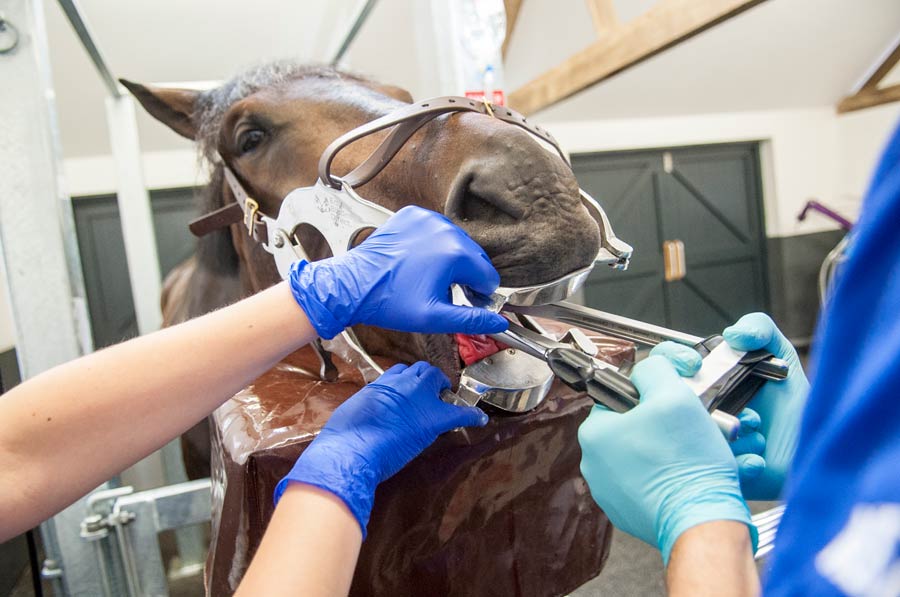When it comes to the health of your horse, understanding the connection between horse colic and dental links is crucial. Colic, a common condition in horses, can often be linked to dental issues. This article will explore how proper dental care can play a role in preventing colic, offering valuable insights for equestrian enthusiasts.

The Importance of Dental Health in Horses
Dental health is a vital aspect of overall equine health. Horses, like humans, require regular dental check-ups to maintain optimal health. Poor dental health can lead to various issues, including difficulty in chewing food, weight loss, and even colic.
Common Dental Problems in Horses
Horses can suffer from a range of dental problems including sharp enamel points, hooks, and ramps. These issues can cause pain and discomfort, leading to improper chewing and digestion.
Signs of Dental Issues
Signs that a horse may be experiencing dental issues include dropping food, weight loss, and bad breath. Regular dental exams can help identify these problems early.
How Dental Issues Can Lead to Colic
When a horse is unable to chew food properly due to dental issues, it can lead to larger pieces of food being swallowed. This can cause blockages in the digestive tract, potentially leading to colic.
Preventing Colic Through Dental Care
By ensuring your horse receives regular dental check-ups, you can help prevent colic. Regular dental care allows for early detection and treatment of dental issues, reducing the risk of colic.
Link Between Diet and Dental Health
The diet of a horse can also impact its dental health. A balanced diet not only supports overall health but also aids in maintaining strong teeth, reducing the likelihood of dental problems.
Feeding Practices to Support Dental Health
Providing your horse with a diet that includes plenty of roughage can help maintain healthy teeth. Roughage encourages chewing, which naturally wears down teeth and prevents overgrowth.
Regular Dental Check-Ups
Scheduling regular dental examinations for your horse is crucial. These check-ups allow for the early detection of dental problems, preventing them from escalating into more serious health issues.
What to Expect During a Dental Check-Up
During a dental examination, a veterinarian will check for common issues such as sharp enamel points and uneven wear. They may also use specialized tools to float, or file down, the horse’s teeth.
For more detailed guidance, you can refer to our Horse Mouth Exam Checklist.
The Role of Professional Care
Professional dental care is essential in maintaining your horse’s health. Veterinarians and equine dental technicians have the expertise and tools necessary to address dental issues effectively.
Choosing the Right Professional
When selecting a professional for your horse’s dental care, ensure they have the necessary qualifications and experience. They should be able to provide a comprehensive dental care plan tailored to your horse’s needs.
Natural Remedies for Dental Health
There are several natural remedies that can support dental health in horses. These include herbal supplements and natural feeds that promote healthy teeth and gums.
For more information, visit our Natural Dental Care for Horses page.
Conclusion
In conclusion, the link between horse colic and dental links is significant. By understanding and addressing dental issues, you can help prevent colic and ensure the overall health and well-being of your horse.

FAQs
What are the signs of colic in horses?
Signs of colic in horses include restlessness, pawing at the ground, and rolling. If you suspect colic, contact a veterinarian immediately.
How often should a horse have a dental check-up?
It is recommended that horses have a dental check-up at least once a year. However, younger horses or those with known dental issues may require more frequent exams.
Can diet affect a horse’s dental health?
Yes, a horse’s diet can impact its dental health. Providing a diet rich in roughage helps maintain healthy teeth and prevent overgrowth.
For more insights on equine dental care, visit this external resource.
This article contains affiliate links. We may earn a commission at no extra cost to you.
